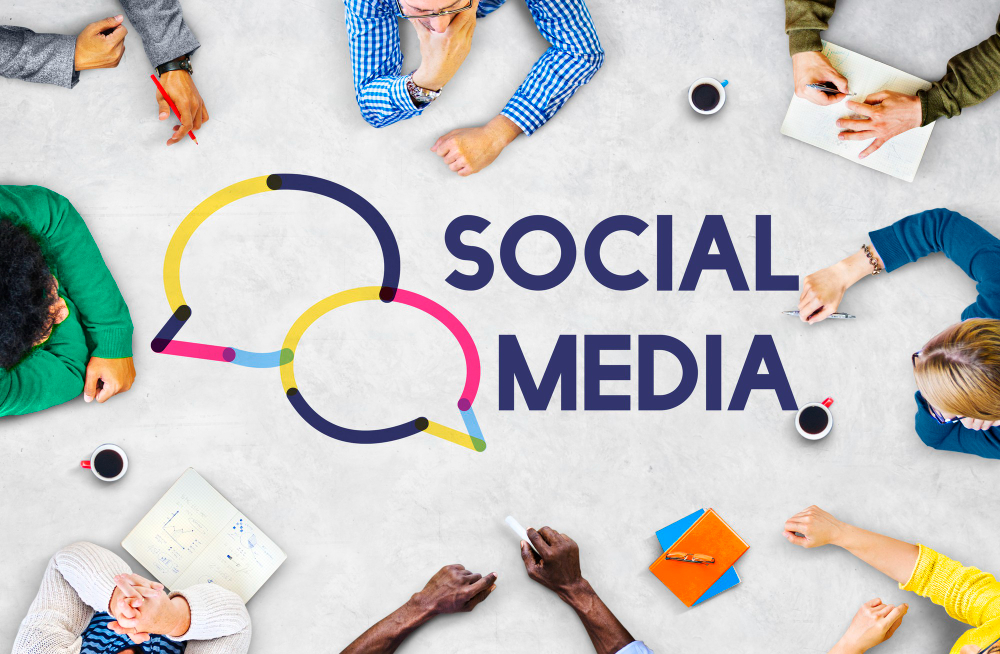
The Impact of Social Media in Modern Education: Enhancing Learning and Engagement
Social media has changed our life and has a great influence in our education system which is way beyond of our thoughts....
Title: The Impact of Social Media in Modern Education: Enhancing Learning and Engagement
Introduction: In the modern era, social media has become an integral part of our daily lives. It has transformed the way we connect, communicate, and consume information. Beyond its role in social interactions, social media has also made a significant impact on education. This article explores the profound influence of social media in modern education, highlighting its positive effects on learning outcomes, student engagement, collaboration, and access to educational resources.
Enhanced Learning Outcomes through Social Media: Social media platforms provide a wealth of educational resources that can supplement traditional classroom materials. Educators and institutions share valuable content, including video lectures, articles, and research papers, on platforms like YouTube, Twitter, and educational blogs. Students can access this information at their convenience, facilitating self-paced learning and deepening their understanding of complex concepts. The availability of multimedia elements such as videos, infographics, and interactive quizzes on social media enhances learning experiences and promotes active engagement.
Increased Student Engagement and Collaboration: Social media platforms offer opportunities for students to engage actively in their learning journey. Discussion groups, online forums, and messaging applications enable students to collaborate on projects, seek assistance, and exchange ideas beyond the confines of the classroom. Virtual classroom environments facilitate real-time interactions and foster a sense of community among learners, breaking down geographical barriers and promoting inclusivity. This heightened engagement and collaboration contribute to improved motivation and better learning outcomes.
Access to a Global Network of Knowledge: Social media connects students to a vast network of global knowledge. Through interactions with peers, educators, and experts from diverse backgrounds, students gain exposure to different perspectives, cultures, and ideas. This exposure fosters critical thinking, cultural awareness, and global citizenship. Social media also provides a platform for international collaborations and virtual exchange programs, allowing students to collaborate on projects with peers from different countries, expanding their horizons and preparing them for the globalized world.
Personalized Learning and Tailored Resources: Social media platforms enable educators to personalize learning experiences and provide tailored resources to meet the diverse needs of students. By leveraging social media analytics and insights, educators can gather data on students' preferences, strengths, and areas of improvement. This data-driven approach allows for the customization of educational content, ensuring that students receive targeted resources and interventions that address their specific learning requirements. Personalized learning experiences enhance student engagement and help maximize their potential for success.
Building Digital Literacy and Online Safety Skills: With the widespread use of social media, it is crucial to equip students with digital literacy skills and knowledge of online safety. Integrating social media into the educational context provides an opportunity to educate students about responsible online behavior, privacy protection, and critical evaluation of online sources. By incorporating social media in educational settings, students develop the skills necessary to navigate the digital landscape safely and ethically, preparing them for the challenges and opportunities of the digital age.
Conclusion: Social media has revolutionized modern education, offering numerous advantages such as enhanced learning outcomes, increased student engagement and collaboration, access to a global network of knowledge, personalized learning experiences, and the development of digital literacy skills. By embracing social media as a valuable educational tool, educators can harness its potential to enrich learning experiences, foster student engagement, and prepare students for the interconnected world. However, it is important to promote responsible usage, educate students about online safety, and strike a balance between traditional teaching methods and digital integration. With a thoughtful approach, social media can continue to make a positive impact on modern education, empowering students and educators alike.

Extensive Reading Books: The Best Habit for Goal Achievement and Personal Growth
Extensive reading helps to achieve goals, improves skills , knowledge & reach to the world.
Title: Extensive Reading Books: The Best Habit for Goal Achievement and Personal Growth
Introduction: In the pursuit of personal and professional success, cultivating positive habits is essential. Extensive reading books is a powerful habit that can greatly contribute to achieving goals and fostering personal growth. In this article, we will explore the tremendous value of extensive reading, not only for expanding knowledge but also for enhancing critical thinking, promoting lifelong learning, and ultimately propelling individuals towards their desired achievements. Discover the transformative power of extensive reading books and how to incorporate this habit into your daily routine for optimal personal and professional development.
Expanding Knowledge and Insight through Extensive Reading: Extensive reading books goes beyond the realm of required materials and exposes individuals to a wide range of topics, genres, and perspectives. By immersing oneself in diverse literature, readers gain a wealth of knowledge and insight. Whether delving into historical accounts, scientific discoveries, philosophical musings, or captivating fictional narratives, each book opens new doors to understanding the world. This broadened knowledge base equips individuals with a deep well of information that can be applied to various aspects of life and work, setting the stage for goal achievement.
Enhancing Critical Thinking Skills: One of the remarkable benefits of extensive reading books is its ability to enhance critical thinking skills. Engaging with different ideas and perspectives challenges the mind and encourages readers to think critically and analytically. Books provide a fertile ground for exploration and contemplation, fostering the development of well-reasoned opinions and informed decision-making. The act of reading stimulates the brain, nurturing the ability to analyze, evaluate, and solve problems effectively. By honing critical thinking skills, individuals gain a valuable edge in achieving their goals.
Promoting Lifelong Learning and Personal Growth: Embracing extensive reading books cultivates a lifelong love for learning. It sparks curiosity, encouraging individuals to continuously seek new knowledge and expand their intellectual horizons. By immersing oneself in books, individuals foster personal growth and development. Reading provides an avenue for self-reflection, empathy, and emotional intelligence. It broadens perspectives and enriches one's understanding of different cultures, societies, and human experiences. This lifelong learning mindset is instrumental in achieving long-term goals as it enables individuals to adapt to evolving circumstances, acquire new skills, and stay ahead in a rapidly changing world.
Incorporating Extensive Reading into Your Routine: To make extensive reading books a regular habit and harness its full potential for personal growth and goal achievement, consider the following practical tips:
1.Set aside dedicated time for reading in your daily or weekly schedule.
2.Create a diverse reading list encompassing a range of genres, subjects, and authors.
3.Join book clubs or online reading communities to engage in discussions and gain book recommendations.
4.Utilize e-readers or digital platforms to access a vast array of reading materials conveniently.
5.Prioritize reading as a form of leisure and personal enrichment, replacing passive screen time with book immersion.
Conclusion: Extensive reading books is a habit that can propel individuals towards goal achievement and personal growth. By expanding knowledge, enhancing critical thinking skills, and fostering a lifelong love for learning, extensive reading unlocks the potential within each individual. Embrace the power of books and incorporate extensive reading into your daily routine. By immersing yourself in the world of literature, you will broaden your horizons, acquire valuable insights, and embark on a transformative journey towards personal and professional success. Start today, and let the pages of books guide you towards achieving your goals and realizing your full potential.

The Role of Technology in Shaping Modern Education: Revolutionizing Learning Experiences
How technology is helping us in shaping 21st century modern education.
Title: The Role of Technology in Shaping Modern Education: Revolutionizing Learning Experiences
Introduction: Technology has become an indispensable part of our lives, transforming the way we communicate, work, and learn. In the field of education, technology has brought about a significant paradigm shift, revolutionizing traditional teaching methods and enhancing learning experiences. This article explores the profound impact of technology in shaping modern education, highlighting its role in improving access to education, personalizing learning experiences, fostering collaboration, and preparing students for the digital age.
Improved Access to Education: Technology has expanded access to education like never before. Online learning platforms, educational websites, and Massive Open Online Courses (MOOCs) have made education more accessible to individuals globally. Geographical barriers are no longer limitations as students can access educational resources and participate in virtual classrooms from anywhere in the world. Technology has opened doors for lifelong learning, enabling individuals to acquire new skills and knowledge at their own pace.
Personalized Learning Experiences: Technology has paved the way for personalized learning experiences, catering to individual needs and learning styles. Adaptive learning platforms utilize artificial intelligence algorithms to tailor educational content to the specific needs of each student. With personalized learning, students can learn at their own pace, focus on areas that require more attention, and engage with content that matches their interests. This approach promotes deeper understanding, boosts motivation, and maximizes learning outcomes.
Collaboration and Communication: Technology facilitates seamless collaboration and communication among students, teachers, and experts across geographical boundaries. Online discussion boards, video conferencing, and collaborative tools enable students to engage in real-time discussions, work on group projects remotely, and seek feedback from peers and educators. This collaborative environment nurtures critical thinking, problem-solving skills, and teamwork, preparing students for the collaborative nature of the modern workplace.
Digital Tools and Resources: The availability of digital tools and resources has transformed the way educational content is created, shared, and consumed. E-books, interactive multimedia, educational apps, and online simulations provide engaging and interactive learning experiences. These resources offer diverse content formats that cater to various learning preferences, making education more engaging and effective. Additionally, digital platforms enable educators to easily access and share up-to-date information, fostering a culture of continuous learning.
Preparation for the Digital Age: In an increasingly digitized world, technology equips students with the skills necessary to thrive in the digital age. Technology integration in education introduces students to digital literacy, information literacy, and critical thinking skills. Students gain proficiency in utilizing digital tools, evaluating online information, and understanding ethical considerations related to technology use. These skills are essential in navigating the complexities of the digital landscape and preparing students for future careers.
Conclusion: Technology has revolutionized modern education, transforming learning experiences and preparing students for the challenges of the digital age. Through improved access to education, personalized learning experiences, enhanced collaboration, and digital tools and resources, technology has reshaped the educational landscape. Embracing technology in education is crucial to unlock the full potential of students, foster lifelong learning, and ensure their readiness for the ever-evolving world. As technology continues to advance, its role in shaping modern education will continue to evolve, creating exciting opportunities for both educators and learners.
